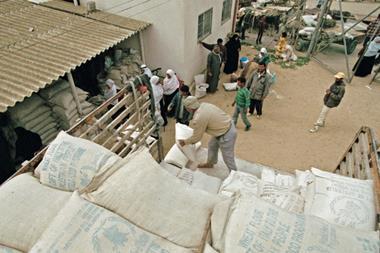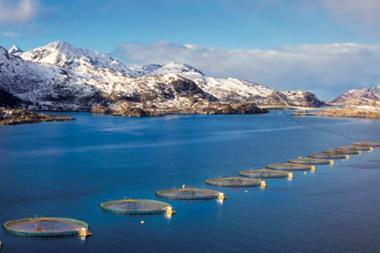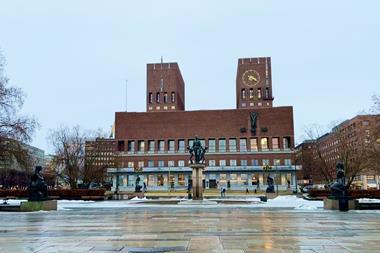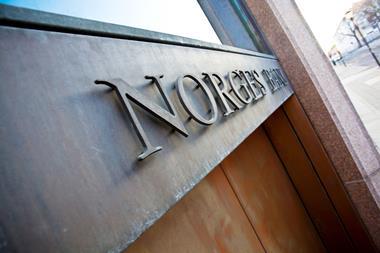
Norway’s NOK1.1trn (€93bn) municipal pensions firm KLP announced this morning it has divested Germany’s Thyssenkrupp and US firm Oshkosh Corporation for supplying weapons or equipment that are being used in Gaza by Israel’s military.
Kiran Aziz, head of responsible investments at the Oslo-based institution’s investment arm KLP Kapitalforvaltning, said: “In June 2024, KLP learned of reports from the UN that several named companies were supplying weapons or equipment to the Israeli Defence Force (IDF) and that these weapons are being used in Gaza.”
Based on that information, she said, KLP had performed a thorough assessment of the firms and engaged in dialogue with them.
“Our conclusion is that the companies Oshkosh and Thyssenkrupp are contravening our responsible investment guidelines. We have therefore decided to exclude them from our investment universe,” Aziz said.
KLP said that up until 16 June, it and its KLP Funds subsidiary owned shares worth around NOK19m in Oshkosh and some NOK10m ThyssenKrupp.
At Thyssenkrup, Konrad Böcker, head of external communications, told IPE the German company acknowledged KLP’s decision, but that the firm conducted its deliveries exclusively based on lawful authorisations and in strict compliance with Germany’s foreign and security policy guidelines.
IPE has asked Oshkosh for comment.
While KLP says its ethical investment guidelines are aligned with those of the Norwegian Government Pension Fund Global (GPFG), and takes account of exclusions carried out by the GPFG based on recommendations from its Council on Ethics, these latest two blacklistings are examples of the municipal pensions giant going its own way.
According to the latest available holdings data, at the end of 2024, the NOK19.5trn SWF had NOK527m of ThyssenKrupp shares and NOK825m invested in Oshkosh equities.
Earlier this month, Norway’s finance minister Jens Stoltenberg defended the SWF’s investment in companies linked to Israeli-occupied Palestinian territory, in the face of a challenge by United Nations special rapporteur Francesca Albanese.
However, NBIM has announced two exclusions of Israeli companies since its ethical council indicated a tougher stance on businesses helping Israel’s operations in the occupied Palestinian territories last August.
In Denmark, meanwhile, AkademikerPension announced last week it is relaxing its responsible investment guidelines for defence investment to free the pension fund to put money into more firms helping Europe bolster its military security.

Jens Munch Holst, AkademikerPension’s chief executive officer, said: “Europe is facing the largest military build up in recent times. So we believe this is the most responsible thing to do – both in terms of return and social responsibility in the current situation.”
In order to support European democracies, the pension fund said, its board of directors had decided to change the pension fund’s responsibility policy and position on weapons – specifically so European weapons manufacturers would no longer be excluded due to connections to nuclear weapons.
The DKK157bn (€21bn) pension fund listed six major European arms manufacturers, which it has now removed from its exclusion list – Airbus, Babcock International, Dassault Aviation, Leonardo, Safran and Thales — as well as three smaller firms.
Separately, Swiss responsible investment pension fund group SVVK-ASIR said it has updated its exclusion list, adding Zen Technologies to its list of recommended exclusions due to its involvement in controversial weapons.
The pension fund group also said two companies had been added to the list following an unsuccessful engagement dialogue process, namely SDIC Power Holdings Co, and Tongling Nonferrous Metals Group Co.
Read the digital edition of IPE’s latest magazine























